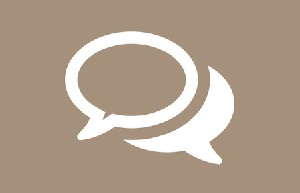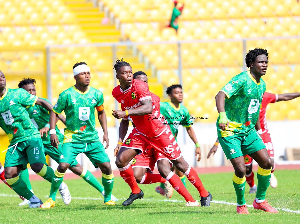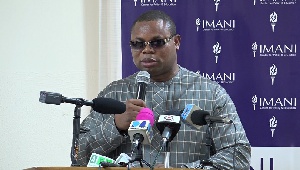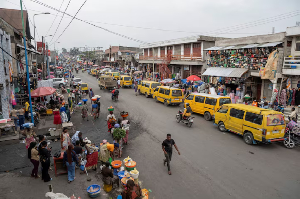Africa is standing up. After centuries of poverty, the world's largest continent is developing fast. Economic growth in Africa will be around 5 per cent this year and has doubled the global average for more than a decade.
The proportion of Africans defined as absolutely poor – living on $1.25 a day or less – has fallen by one third to four in ten since the 1990s; there are now 160,000 millionaires in Africa, and the average African earns $1,720 a year ($200 more than the average Indian). Thirty years after Live Aid, Ethiopia’s first yuppies are traders on Africa’s first commodities exchange.
This transformation is bringing the end of human poverty within sight. So it might seem in tune with the times that aid activists lobbying the UN General Assembly this month in New York are urging world leaders to end poverty by 2030. But that it is to misunderstand the dynamics of the aid industry. The campaigners are not asking for the end of African poverty. They are asking for the end of African poverty through aid.
Foreign aid has long been problematic. Sometimes corrupt and generally inefficient, even the best aid suffers from the paradox of the patrician: that by finding noble purpose in the lives of others, you can subtract that same purpose from those lives; that the very act of trying to help someone can diminish them. Many aid workers are reasonable, well-intentioned and driven. Time was when most admitted these conundrums but accepted their flawed system as the only system there was.
Assistance, it is true, does have a place as a temporary measure in emergencies or even to effect a one-time lift out of systemic misfortune – such as the campaign to lift the burden of malaria, which has saved six million lives since 2000. But until recently, all involved understood that the driver of human progress was not external charity but the product of more internal energies: hope, initiative, grit, imagination.
As aid has grown, it has lost its humility. It is now a mammoth global industry worth $134.8 billion and employing 600,000 people a year – more than the world’s most valuable business, US oil and gas. In sub-Saharan Africa, it is worth an annual $55.8 billion, making it equivalent to the yearly output of Africa’s 20 poorest countries. That is to say that aid is the biggest business in Africa, worth close to half the continent.
Like any business, aid looks to protect its bottom line and to grow. And aid’s business is crisis. So it is that even as Africa’s economies have rocketed in the new millennium, aid agencies have used their vast budgets to blanket newspaper front pages and billboards across Western capitals to portray a continent that has never been worse. The only way out, so the chorus goes, is more aid.
Those who live outside Africa can be forgiven for being blind to the aid business’ self-interest. Faced by its excruciating blackmail – an image of a starving baby – and not knowing any better, who would dare call it out? Inside Africa, however, that image is seen for what it is: a misrepresentation so gross it approaches a lie – whether of Africa, or its needs, or the ability of aid to assist it. It is, literally, the infantilizing of an entire continent.
In today’s Africa, money is giving ordinary people the means and authority to push back at anyone still pushing them around. Who are these last false prophets who would keep them in their place? Africa’s last few dictators, its newly resurgent jihadis – and aid workers. While they may differ substantially in motivation and intent, they share the presumption that they can tell Africans who to be and how to behave. That has always been arrogant. Increasingly it is wrong.
Because here’s the other thing about development: if its economic implications are profound, its social and political ones are even more so. If the world’s primary division is between rich and poor, more money brings Africans closer to the day when all human beings really are created equal. It removes the last argument of racism: the contention that if attainment varies with race, it is no accident.
Most important to the aid agencies, since if the continent’s new narrative is no longer be about weakness but resourcefulness, it will kill off forever the notion that development is something rich people in rich countries do to poor people in poor countries through charity.
In this newly assertive Africa, no longer will Africans allow speaking up for the continent to become speaking for it or defending their interests become deciding them. Half a century after Africa won its formal liberation, it is now winning the substance of it. Once Africa’s final struggle for freedom ends, our differences should feel less of a partition or a basis for arrogance than an expression of diversity. The end of poverty by 2030? Quite possibly. But if the activists in New York were honest – about Africa’s development and how it really happens – they would add a second aspiration: the end of aid.
Alex Perry was based in Africa as a foreign correspondent for a decade, writing for TIME and Newsweek among others. His latest book, The Rift: a New Africa Breaks Free, is published this month.
Opinions of Friday, 25 September 2015
Columnist: Alex Perry















